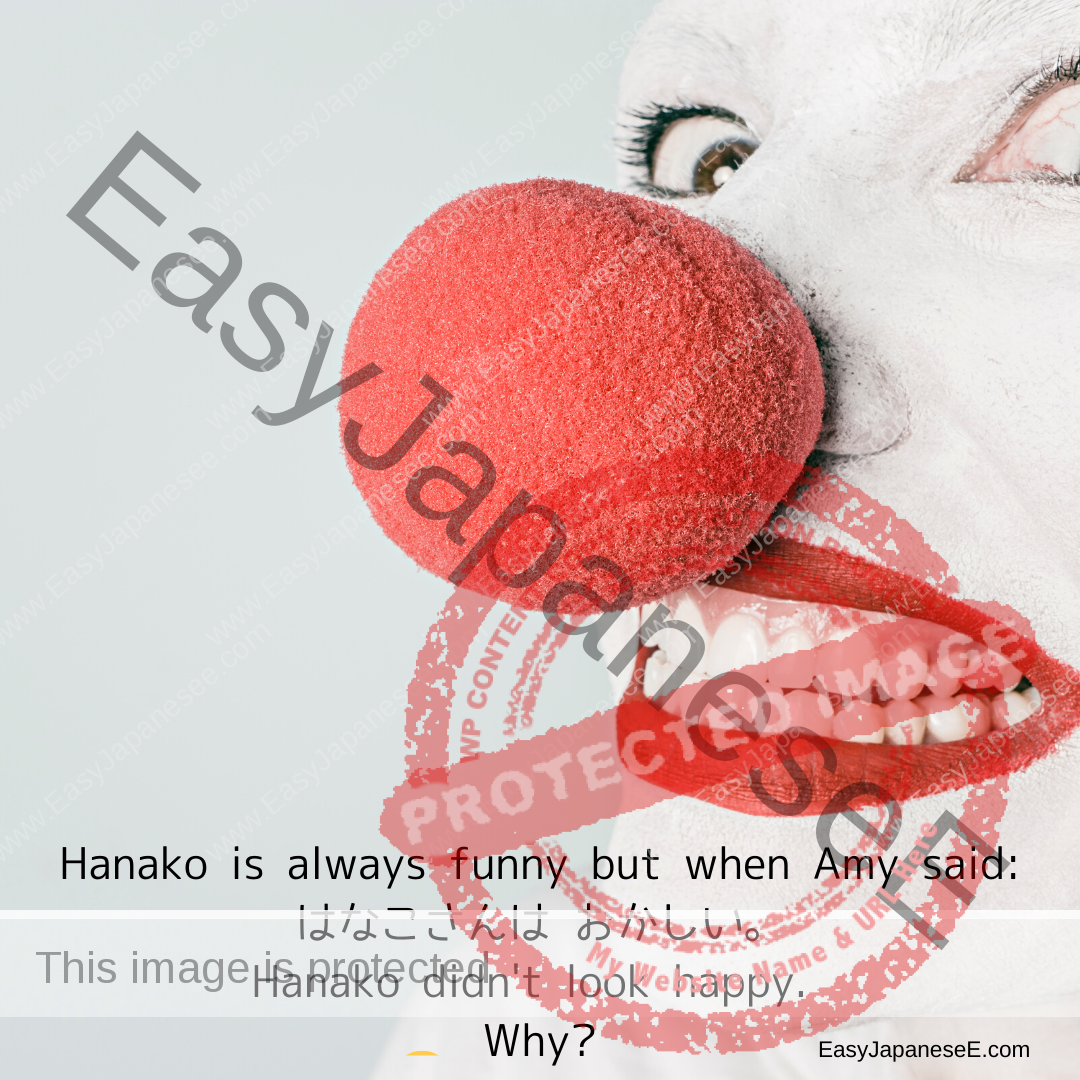Hanako tells jokes all the time and she is really funny. So Amy described her:
はなこさんは おかしい。
Amy thought she made a compliment, but Hanako wasn’t pleased or looked rather offended. Why? What should Amy have said?
おかしい is often translated as “funny” and describes a positive/happy condition which makes people laugh. However, おかしい also has a negative meaning of “strange,” “suspicious” and/or “inappropriate” and when you start a sentence with “[person]は,” おかしい is usually understood in that meaning. So はなこさんは おかしい becomes an insult. If you want to make a compliment, you should say: はなこさんは おもしろい. おもしろい means more “interesting” than “funny” but in this context, おもしろい is the far more appropriate word.
If you liked this article, please share it with your friends using the social media buttons below.
Also, your clicks on ads on this page help covering the cost of running this website. Your support will be much appreciated.

